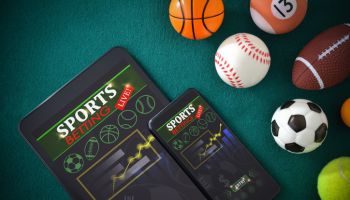Jay-Z is out promoting his newest project, Decoded, which is claimed to be a personal narrative, lyrical deconstruction and hip-hop history all at once. It is fitting that the prolific rap artist has decided to write his reflections in the form of a 336-page book. Black boys who aspire to be rappers, and those who just love hip-hop, may actually read Decoded, one author suggests. Given the growing achievement gap for African-American youth, and African-American males in particular, getting some black kids to take time out from sports and video games to read something other than text messages on their cell phone is no insignificant feat.
According to a recent study only 12 percent of black male students nationally, performed at or above proficient reading levels, compared with 38 percent of white males. In eighth grade, only 9 percent of black males were proficient in reading compared with 33 percent of white males nationwide. The data speaks to an educational disaster that crosses racial lines, but among black youth, its catastrophic.
To make matters worse, too many black boys and girls who do strive to do their best in school are still ridiculed by their peers for “acting white” or labeled as nerds. There is a complex and traumatic socio-economic history behind the educational statistics and unhealthy attitudes among too many of our black students. The question is how do we resolve a paradoxical reality where there is a United States Present with African descent and millions of black youth who can’t read living in the same country?
I am an African-American man who experienced being called white in school because I knew how to speak standard English and I enjoyed learning. Reflecting back, I can see how I tried to “dumb myself down”, and fell into underachievement at times because of negative peer pressure. Fortunately, I had a mom who was an educator and a dad who was a corporate executive that demanded I do my best regardless of what anyone else thought or said. Now, I’m trying to help my 12-year old daughter maintain her own thirst for knowledge and develop the courage of non-conformity.
It was not until college that I truly felt free to indulge my intellectual curiosity and began to fully realize that it was cool to be smart – and black. That’s the message that our black children desperately need. As an undergraduate in the 1990’s, Cornel West and Michael Eric Dyson showed me that being a black nerd could be quite lucrative and fulfilling. Before Facebook, Twitter and even MySpace, there was a social media website called BlackPlanet.com that was founded by cool black geeks like Omar Wasow. African-American kids must not only be taught their heritage of literary, scientific and entrepreneurial achievement, but they have to be exposed to and even mentored by contemporary representations of that legacy.
There is a popular saying by Charles J. Sykes that encourages “Be nice to nerds. Chances are you’ll end up working for one.” We shouldn’t just be nice to nerds who look like Bill Gates or Mark Zuckerberg, the founders of Microsoft and Facebook respectively, but also to those black youth who could be the tech billionnaires of the future with more support and opportunities. The bottom line is this: We need more black nerds and geeks. The first step is making sure African-American students can read.
Rod Garvin has lived in Charlotte, NC for over 15 years. He writes about faith, politics, popular culture and entrepreneurship. He received his Bachelor of Arts from the University of North Carolina at Charlotte and his Master of Theology from Hood Theological Seminary. You can email Rod at rodgarvin@yahoo.com and follow him on Twitter @rodgarvin.
Related articles:
















